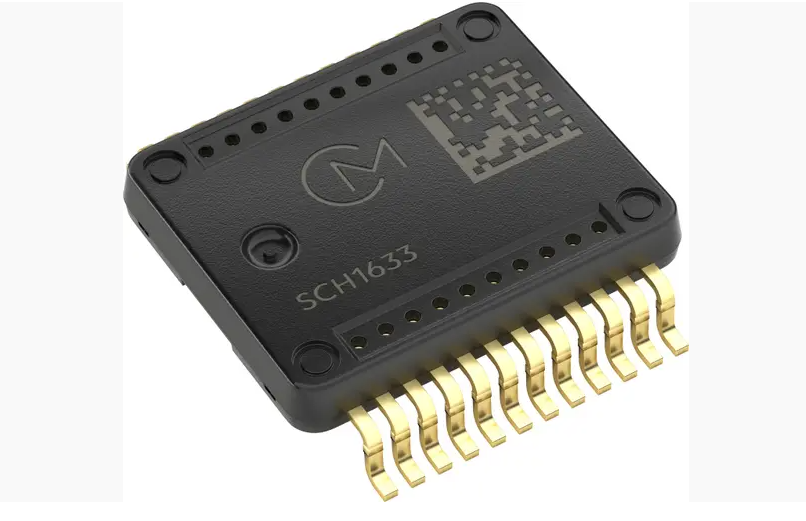Murata Manufacturing Co., Ltd. has unveiled its latest innovation in automotive sensor technology, the SCH1633-D01, which is set to raise the bar for performance, system integration, and cost optimization in vehicle applications. The micro-electromechanical system (MEMS) sensor is designed to meet the increasing demand for precision in autonomous driving (AD), advanced driver-assistance systems (ADAS), and other key automotive functions, including inertial navigation, vehicle stability control, and headlight alignment.
With the automotive industry pushing towards greater vehicle autonomy and enhanced safety standards, the need for highly accurate, integrated sensors has never been greater. The SCH1633-D01 is positioned to fulfil this demand by offering a cost-effective, high-performance solution that adheres to stringent technical regulations, such as the UNECE’s headlight leveling regulation, which requires precise measurement and optimization.
The SCH1633-D01 is a single-package solution that integrates multiple subsystems into a zonal architecture, allowing for the measurement and sensing required for applications like GNSS integration, chassis control, and vehicle attitude sensing. This integration helps reduce the overall system complexity, delivering an opportunity for cost optimisation while ensuring high-quality outputs across all vehicle subsystems. It is designed to serve as the central unit for vehicle inertia measurement, providing reliable signals even in challenging environments.
This new sensor is housed in a unique 24-pin SOIC package and operates via the SafeSPI 2.0 interface, offering a high-resolution output with up to a 20-bit data frame. The SCH1633-D01 is capable of supporting system-level time synchronisation, ensuring that its data can be seamlessly utilised across the entire vehicle system. Moreover, the sensor is equipped with over 200 monitoring signals to ensure trustworthy outputs at all times, thanks to its extensive self-diagnostic features.
The SCH1633-D01 is built to withstand harsh operating conditions and offers an exceptional level of reliability, thanks to its AEC-Q100 grade 1 qualification. This guarantees the sensor’s robustness throughout its lifecycle. Additionally, the sensor complies with ISO26262 safety standards, boasting an ASIL-B+ rating, which can be extended to ASIL-D through system integration, ensuring the highest levels of built-in safety for critical automotive systems.
The launch of the SCH1633-D01 underscores Murata’s commitment to providing innovative solutions that support the evolution of automotive technologies, particularly in the areas of safety, performance, and integration. As vehicle manufacturers continue to embrace autonomy and advanced safety systems, sensors like the SCH1633-D01 will play a crucial role in the development of the next generation of automotive technologies.
Murata’s new sensor offers a promising solution for automakers looking to integrate advanced functionality while optimising costs and system complexity, making it a key component for the future of automotive innovation. For further information on the product’s extensive functionality, please visit its detail page here.



